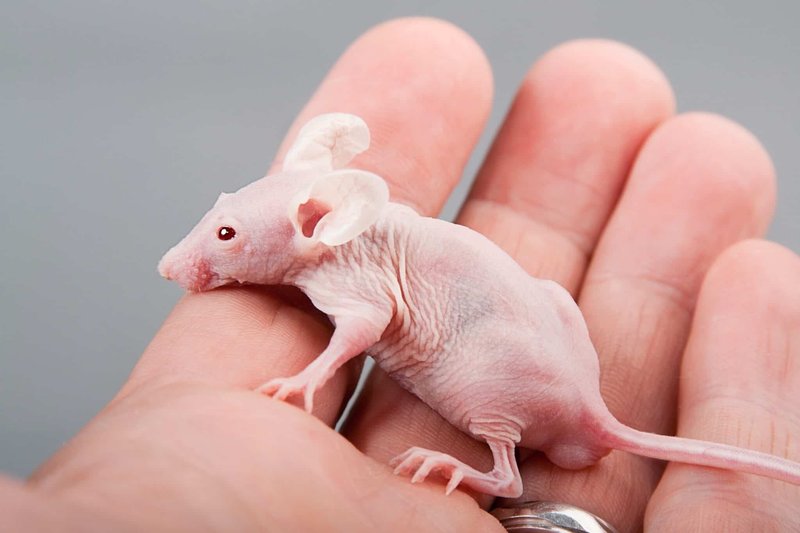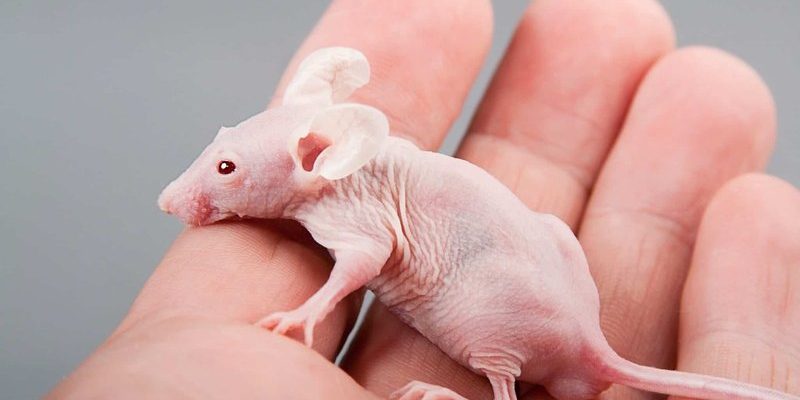
Hairless rats are exactly what they sound like—domesticated rats that have little to no fur. They’re often bred specifically for this characteristic. But is this little critter the right fit for you? Let’s dig in and explore the pros and cons of hairless rats, helping you figure out if they belong in your home, or if you might want to consider something else instead.
What Are Hairless Rats?
Hairless rats are a special breed of domesticated rats, known scientifically as *Rattus norvegicus*. Unlike the fluffy variety, they sport a smooth, almost velvety skin, which gives them a distinctive appearance. While they may seem a bit unusual, many people find them utterly adorable.
You might be wondering why they’re hairless. This trait is due to a genetic mutation. Breeders have selectively bred these rats to enhance this trait, resulting in the lovable little buddies we see today. Their lack of fur makes them sensitive to temperature, so they often need extra care when it comes to their environment.
Though they’re not commonly found in pet stores, hairless rats can be obtained from breeders or rescue organizations. When you bring one home, you may find yourself drawn in by their playful behavior and curious nature. But before you make the leap, consider what it really means to own a hairless rat.
The Pros of Owning a Hairless Rat
When it comes to hairless rats, there’s much to love. Here are some of the biggest benefits:
- Unique Appearance: They stand out in the crowd. A hairless rat’s shiny, smooth skin can be a conversation starter, making them fun companions.
- Friendly Nature: Most hairless rats exhibit a friendly, social personality. They love interacting with their humans and other rats, making them great pets.
- Less Allergens: If you or someone in your home suffers from allergies, hairless rats may be a suitable option. Without fur, they produce fewer allergens than traditional furry pets.
- Smart and Trainable: Rats are incredibly intelligent! You can teach them tricks, and many enjoy playing games, which can be quite entertaining.
It’s no secret that pets can significantly enhance your life, and hairless rats are no exception. They require social interaction and can become quite attached to their owners. If you’re seeking a pet that can enrich your life with companionship and laughter, a hairless rat might just be the right choice.
The Cons of Owning a Hairless Rat
While there are plenty of upsides, owning a hairless rat isn’t all sunshine and rainbows. Here are some challenges to consider:
- Higher Maintenance: Without fur, hairless rats require more care, especially regarding their skin. You’ll need to ensure they’re kept in comfortable temperatures to avoid issues like dry skin or body temperature drops.
- Health Concerns: Hairless rats can be prone to certain health issues, including skin problems and respiratory conditions. Regular vet visits can be a must if you decide to adopt one.
- Social Needs: These little guys thrive on social interaction. If you’re frequently away from home, a hairless rat can become lonely, which might lead to stress or destructive behaviors.
- Shorter Lifespan: On average, hairless rats have a shorter lifespan compared to their fur-covered pals. While all rats live about 2-3 years, health complications can make this span even shorter.
Taking on a pet is a serious commitment. It’s crucial to weigh these cons against the pros and decide if you’re ready for the responsibility that comes with caring for a hairless rat. Their unique needs may require more effort on your part, but the reward of their companionship can make it worthwhile.
Care Requirements for Hairless Rats
If you decide to welcome a hairless rat into your home, you’ll need to keep a few care essentials in mind:
1. Habitat: Hairless rats need a spacious cage with plenty of vertical space to climb. Wire cages with multiple levels can be a great choice. Make sure to line the bottom with bedding that’s safe for them, like aspen or paper-based products.
2. Temperature Control: Since hairless rats lack fur, they are more sensitive to cold. Keep their environment warm but not too hot, ideally between 70°F and 80°F. A cozy hideout or safe heating pad can help them stay snug.
3. Diet: A balanced diet is essential for your hairless rat. High-quality rat pellets should be their staple, supplemented with fresh fruits and veggies as treats. Just be cautious of what you feed them—some foods can harm your little friend.
4. Health Monitoring: Regularly check your rat for signs of skin issues, respiratory problems, or other health concerns. Establishing a relationship with a vet who understands unique needs is a smart move.
With a little effort and proper care, your hairless rat can thrive, serving as a loving companion and an interactive pet.
Socialization and Bonding
Building a bond with your hairless rat is key to a happy relationship. Here are some tips to help you connect:
– Spend Time Together: Set aside time each day to play with your rat. Handle them gently to help them get used to your presence. The more time you spend with them, the more trust you’ll build.
– Offer Treats: Use treats to encourage interaction. Healthy snacks like small pieces of fruits or veggies can go a long way in winning over their hearts.
– Create a Play Space: Provide a safe area for your rat to explore. Using tunnels, toys, and even boxes can make them feel comfortable while allowing them to express their natural curiosity.
– Be Patient: Just like with any pet, building a relationship takes time. If your hairless rat seems shy at first, that’s okay! Give them time to come out of their shell, and soon enough, you’ll find a joyful companion.
Hairless rats are known for their affectionate nature, but it’s all about how you nurture that bond. Patience and love will help you develop a strong relationship with your new friend.
Alternatives to Hairless Rats
If you’re still undecided about a hairless rat, there are other pet options to consider. Here are a few alternatives:
– Furry Rats: Similar in behavior but with fur, furry rats can provide a fantastic pet experience. They have all the same playful and friendly traits as hairless rats.
– Guinea Pigs: These adorable little creatures are also social and require similar care. They come in various breeds, including some that are hairless, like the American or Skinny Pig breeds.
– Hamsters: If you’re looking for something smaller, hamsters can be fun and interactive pets. They don’t require as much hands-on interaction but still offer plenty of personality.
– Gerbils: These small rodents are low-maintenance and social, making them great companions for kids or even adults.
Ultimately, it’s all about what fits your lifestyle best. Each of these options offers its own unique benefits and drawbacks, so take the time to consider what works for you.
Final Thoughts
Deciding if a hairless rat is right for you can feel overwhelming at first. But by weighing the pros and cons, you can see a clearer picture of what you’re getting into. While they require special attention in terms of care and socialization, their unique personalities and playful nature can bring joy and companionship to your home.
If you’re ready for the commitment, a hairless rat can become a cherished member of your family. Just remember: every pet, regardless of its appearance or breed, deserves love, patience, and understanding. Whether you choose a hairless rat or another furry (or non-furry) friend, the most important part is creating a nurturing environment where everyone thrives. Happy pet parenting!

